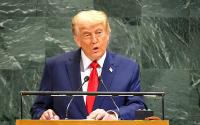31 March 2005YubaNet.com
National agricultural experts and government officials from Poland, together with representatives of key UN agencies, are meeting here today to begin the final phase of Poland's efforts to eliminate the use of methyl bromide by the end of 2005. The requirement is mandated by the Montreal Protocol on Substances that Deplete the Ozone Layer.This Decision Maker's Workshop for the Post Harvest Sector also marks the first in-country activity of an ambitious regional project to phase out the use of methyl bromide by 31 December 2005 in five countries: Bulgaria, Hungary, Lithuania, Latvia and Poland. Under this project, the United Nations Environment Programme (UNEP) and the United Nations Development Programme (UNDP) will jointly deliver training and investment services to assist the countries in meeting this deadline. Support for this project is provided by the Global Environment Facility (GEF).Methyl bromide is an ozone-depleting chemical used worldwide for fumigating soil and controlling pests. Its consumption and production is controlled under the Montreal Protocol on Substances that Deplete the Ozone Layer, and it is being phased out according to a rigid timetable. Developed countries, such as Poland and the other countries under the regional project, have agreed to reduce methyl bromide by 25% by 1999 (compared to 1991 levels), 50% by 2001, 70% by 2003 and 100% by 1 January 2005. For developing countries, the schedule started with a 2002 freeze (at average 1995-98 levels) and continues with reductions of 20% by 2005 and 100% by 2015. The five countries will eliminate a combined total of about 167 metric tonnes of methyl bromide under this project. The majority of this use is in the post harvest (storage of commodities) and soil fumigation sectors.Poland, like the majority of the other participating countries under the regional project, is newly-acceded to the European Union. The country is thus striving to meet not only the phase out targets of the Montreal Protocol, but also the more stringent requirements contained in EU regulations.The GEF support will provide Poland and the other project countries with the latest technology for methyl bromide alternatives, in some cases before the technology has been adopted by other EU members. This includes chemical and non-chemical alternatives such as phosphine, heat and sanitation techniques, and Integrated Commodities Management (ICM) in the post harvest sector, as well as the use of metam sodium, Dazomet, soil amendments, substrates, grafting techniques and Integrated Pest Management (IPM) in the soil sector. In addition, UNDP will be securing some of the latest equipment to assist in the applications of alternatives. This project follows on the first of its kind, a GEF Medium-Sized Project that initiated early phase out of methyl bromide in countries with economies in transition (CEITs) through awareness raising, policy development and demonstration/training activities, implemented by the UNEP DTIE OzonAction Programme.This regional project comes at a time when interest in methyl bromide phase out is high. Several developed countries are currently submitting Critical Use Exemptions (CUEs) for the consideration of an Extraordinary Meeting of the Parties to be held this July. They are essentially seeking waivers on the phase out for certain non-QPS uses of methyl bromide. The Montreal Protocol allows governments to apply for exemptions from the Protocol's total phase-out requirements for certain controlled substances, provided criteria agreed by the Parties are met. In the case of methyl bromide, exemptions are intended to give users additional time to identify and adopt technically and economically feasible alternatives for eliminating pests in a range of crops. Poland currently has been approved CUEs for 2005 for strawberry nursery plants, medicinal herbs and dried mushrooms.Through this first Decision-Maker's Workshop, Poland's country stakeholders and the media will have the opportunity to learn about the project components and cooperation planned between agencies and countries, as efforts begin to achieve the final total sector phase out of methyl bromide across the countries.






